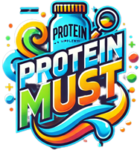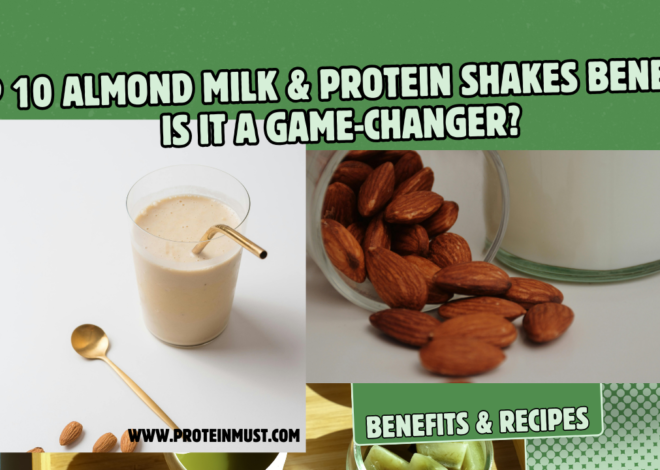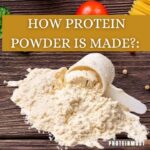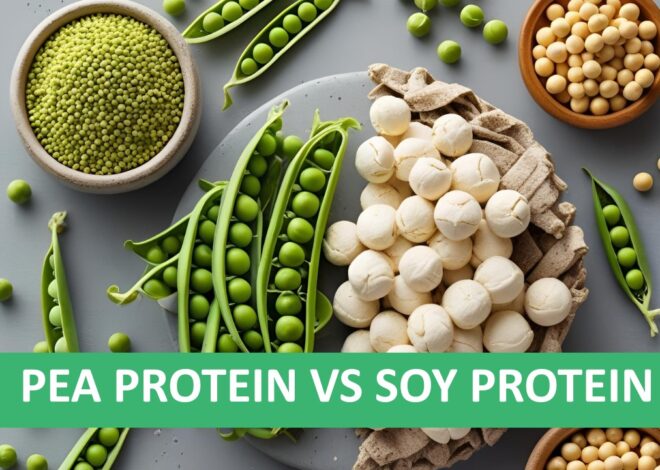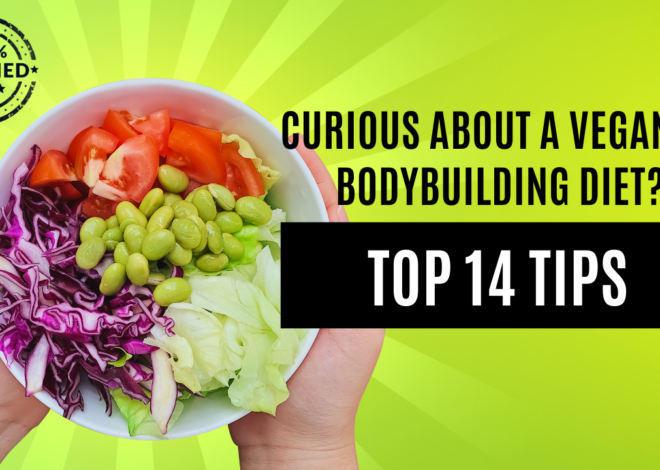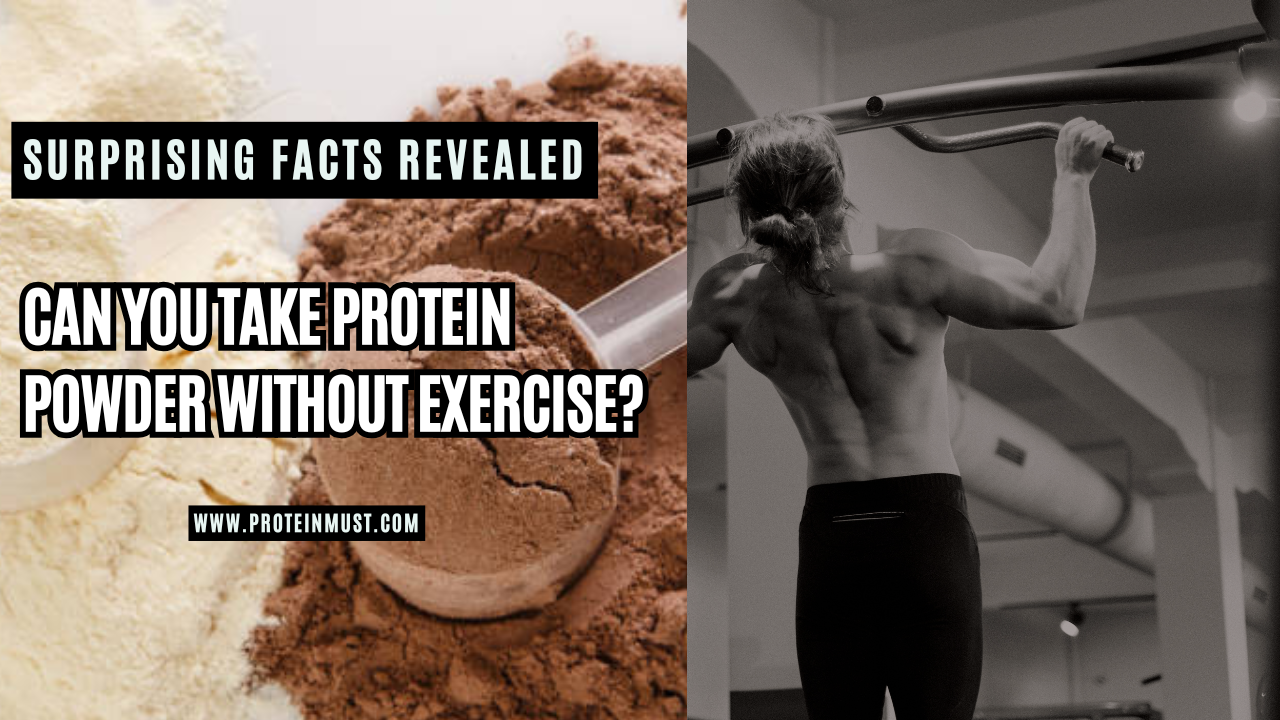
Can You Take Protein Powder Without Exercise? Surprising Facts Revealed
Many people drink protein shakes to build muscles, but without physical activity, their effects change. Instead of less muscle gain, you may experience unwanted weight gain and an abnormal spike in blood glucose level. Without exercising, your body struggles to use extra protein, which can increase the risk of kidney-related problems. However, if you manage calorie intake and don’t exceed daily calorie needs, protein shakes can still provide benefits. Some fitness experts believe they help maintain muscle even on rest days. But it’s important to understand the forms, uses, and consequences of taking Protein Powder Without Working Out . As a popular supplement, they attract fitness enthusiasts, but their value extends beyond the gym. Knowing the right protein amount requirements can prevent unnecessary weight gain while ensuring you still get the nutrients your body needs.
What Happens If You Take Protein Powder Without Working Out?
The timing of your protein shake is often discussed in the lifestyle and fitness communities. Some believe in protein windows, debating whether it should be taken before or after a workout. Others argue there’s a longer window post-exercise where protein intake remains important. The average sedentary person requires 45-55 grams of protein daily, while a professional athlete may need up to 120g. Your requirements vary based on weight, age, gender, and goals. A well-balanced diet should meet these needs, but supplements help fill gaps. Understanding the right intake for your lifestyle is crucial, and this guide can help determine what’s best for you. Through muscle protein synthesis, it aids post-stress recovery and repair. Without exercise, excess protein may not be as beneficial as expected. Also read The Secret Power of Amino Acids for Better Workouts. So, what really happens if you drink protein shakes without working out? Let’s break it down
Can You Take Protein Powder Without Working Out?
Yes, you can drink protein shakes without working out—but the benefits depend on your lifestyle, goals, and dietary needs. While protein is crucial for muscle protein synthesis, its effects change when exercise isn’t involved. To find the right answer of knowing result of Protein Powder Without Working Out, we need to explore protein metabolism and how your body processes protein in the absence of exercise. While they may not significantly boost muscle growth without exercise, they still offer valuable benefits.

Understanding of Protein Powder & Protein Shakes:
Protein Powder:
Protein powder is a dietary supplement made from various protein sources, designed to help individuals meet their daily protein needs. It is commonly used by athletes, bodybuilders, and individuals looking to support muscle growth, recovery, weight management, or general nutrition.
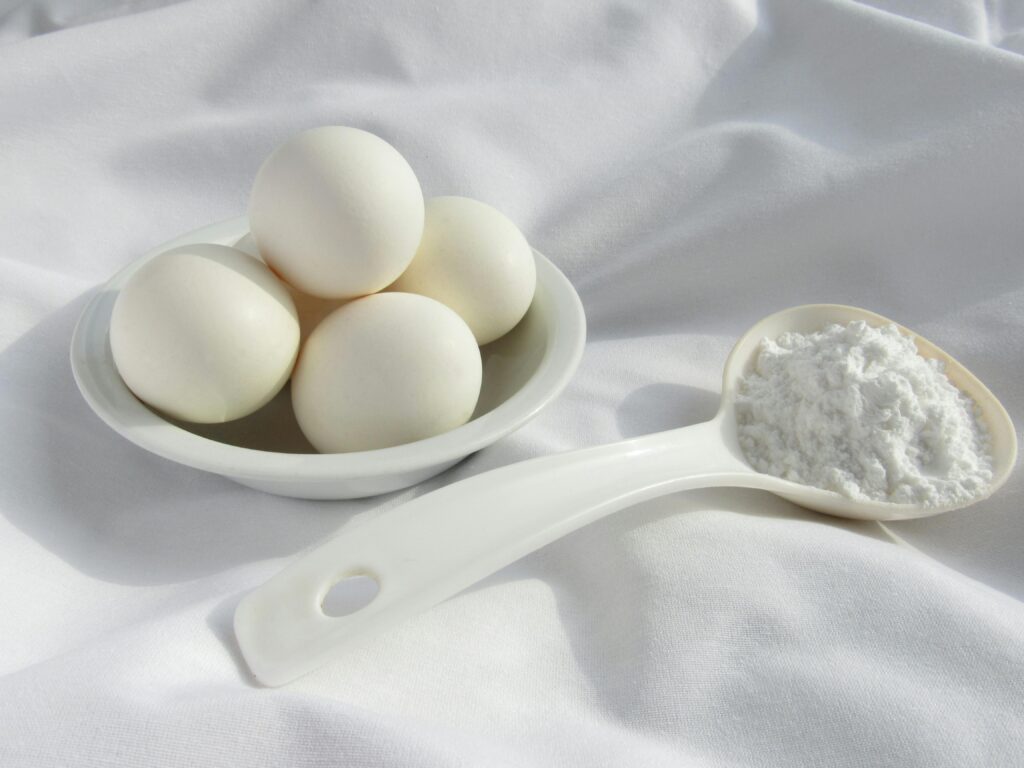
Protein powder provides several advantages:
Concentrated protein source:
A concentrated protein source, protein powder offers a convenient way to add a powerful dose of protein to your diet. Since protein is essential for tissues, enzymes, and hormones, it plays a vital role in overall health. It can be a good example of Protein Powder Without Working Out
Versatility
Its versatility makes it even more beneficial, with options like whey, casein, soy, and pea protein to suit different dietary preferences and needs.
Easy to digest and absorb:
Plus, it’s often easier to digest and absorb than whole food sources like meat or legumes. In this form Protein Powder Without Working Out can be helpful
Boosts satiety:
Another key benefit is its ability to boost satiety, helping you feel fuller for longer and potentially supporting calorie control.
How Much Protein Does Our Body Need?
General Daily Protein Recommendations
- According to the Food and Nutrition Board of the Institute of Medicine, the Recommended Dietary Allowance (RDA) for protein is:
- 46g per day for females (aged 19 and above).
- 56g per day for males (aged 19 and above).
Sedentary Individuals
- The amount of protein required daily depends on factors such as age, sex, body weight, and overall health.
- The RDA for a healthy, sedentary adult is 0.8 grams of protein per kilogram of body weight.
- This is sufficient for basic bodily functions like muscle maintenance, enzyme production, and immune support.
Athletes & Bodybuilders
- Individuals engaging in regular strength training, endurance sports, or high-intensity workouts require more protein for muscle recovery and growth.
- Recommended intake:
- 1.6 – 2.2 grams per kilogram of body weight for moderate to intense training.
- Higher intake may be needed during intense training phases or when aiming for muscle hypertrophy (growth).
Protein Shakes:
Protein shakes are dietary supplements that supply amino acids, the essential building blocks of proteins. Made by mixing protein powder with water or other liquids, they can also include extra ingredients for better taste. While commonly taken before or after a workout, protein shakes serve multiple purposes, including muscle gain, weight loss, and injury recovery. Their versatility makes them a valuable tool for various fitness and health goals.

Benefits of Protein Shakes:
There are number of health benefit of protein shakes. They can be a deciding factor of knowing result of protein powder without working out.
Fast Absorption & Efficient Nutrient Delivery
- Protein shakes are digested and absorbed much faster than whole food sources like meat, beans, or legumes.
- This rapid absorption provides the body with essential amino acids almost immediately after consumption.
- Ideal for post-workout recovery, as muscles require quick protein replenishment to repair and grow.
Supports Muscle Repair & Growth
- Helps stimulate muscle protein synthesis (MPS), the biological process responsible for muscle recovery and development.
- Reduces muscle breakdown after intense workouts, aiding in quicker recovery.
- Essential for athletes, bodybuilders, and fitness enthusiasts looking to maintain or build lean muscle mass.
Appetite Regulation & Satiety
- Protein shakes can help keep you feeling fuller for longer, which is great for controlling appetite and reducing your overall calorie intake. By including protein in your meals or as a shake, you can curb hunger and prevent overeating, making it easier to stick to your nutritional goals.
- This effect is especially beneficial when trying to manage weight or enhance satiety between meals. Protein’s ability to keep you feeling satisfied helps you avoid unnecessary snacking or excess calorie consumption.
Lose Weight
- Protein takes longer to digest than carbohydrates, helping to suppress appetite and reduce hunger. Drinking protein shakes can curb food cravings and help you feel full for longer, reducing unnecessary calorie consumption.
- A 2017 study showed that participants on a high-protein diet lost more weight compared to those following a standard-protein diet.
Supplement Protein Intake
- Protein shakes provide a convenient way to supplement your protein intake, especially if access to quality, high-protein whole foods is limited.
Promote Quicker Muscle Recovery
- After resistance training or intense workouts, your muscles experience stress and small tears.
- Protein shakes supply an immediate source of amino acids, which are quickly absorbed, supporting muscle repair and triggering more responsive muscle synthesis post-exercise.
Who Benefits from Protein Shakes?
Athletes & Bodybuilding Enthusiasts
- Depend on protein shakes to support muscle growth, repair, and recovery after intense workouts.
- Helps optimize muscle protein synthesis (MPS), which is crucial for gaining and maintaining lean muscle mass.
- Provides a quick and efficient protein source to meet high daily protein requirements.
Individuals Aiming for Weight Loss
- Use protein shakes to increase satiety and reduce hunger cravings.
- Helps with calorie control by providing a nutrient-dense, low-calorie alternative to unhealthy snacks.
- Can be used as a meal replacement or part of a balanced diet to support fat loss while preserving muscle.
Vegetarians & Vegans
- Often struggle to get sufficient protein from plant-based whole foods alone.
- Plant-based protein shakes (e.g., pea, soy, hemp, or rice protein) provide a convenient and complete protein source.
- Helps bridge nutritional gaps for those following meat-free or dairy-free diets.

Busy Individuals & Professionals
- Prefer protein shakes as a quick, easy, and portable protein source when time is limited.
- Eliminates the need for meal prep, making it a great option for on-the-go nutrition.
- Ideal for people with demanding work schedules, students, or travelers needing a fast, nutritious boost.
Forms of Protein Shakes
Many people are exploring different protein powders to maximize their workout results. Below are the most popular types of protein powders commonly used in protein shakes:
Dairy-based protein powders:
- Whey protein powder is the most-studied and widely consumed by athletes and bodybuilders. Derived from cow’s milk, it contains all essential amino acids and has a high protein bioavailability.
- Casein protein powder, also from milk, is tasteless and odorless, offering all essential amino acids but with a lower protein bioavailability compared to whey.
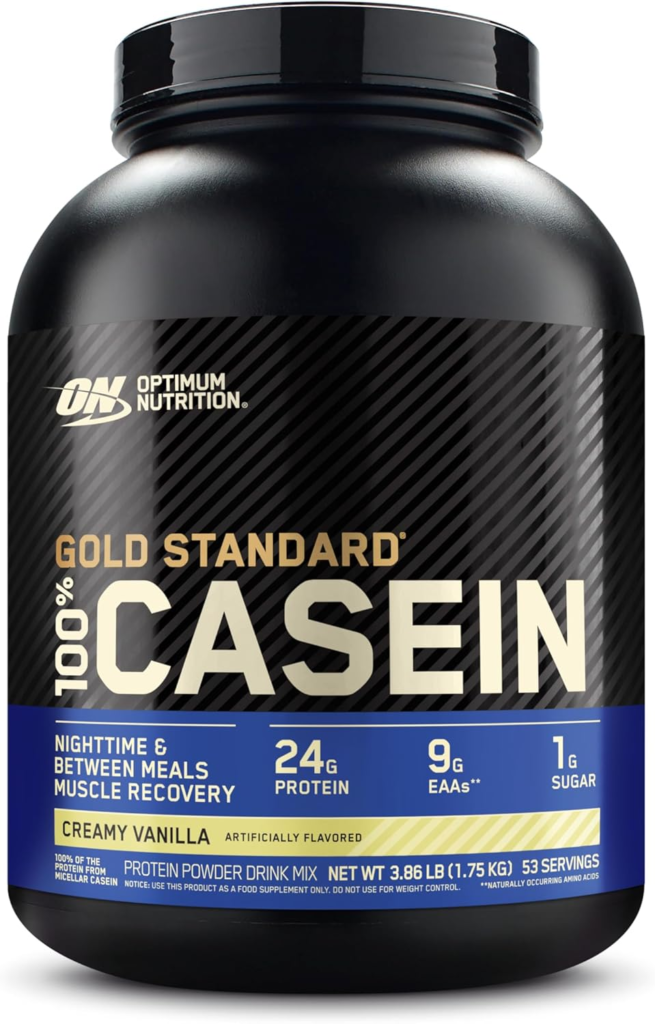
Plant-based protein powders:
- Hemp protein powder comes from hemp seeds and contains all essential amino acids, particularly high in arginine. It’s also rich in omega-3 and omega-6 fats.
- Pea protein powder is derived from yellow split peas and is known for being less allergenic, offering all essential amino acids.
- Soy protein powder, derived from the soy plant, is a complete protein and contains soy isoflavones.
- Rice protein powder is typically made from brown rice. It provides most essential amino acids but is considered less effective than whey protein for muscle building due to its low lysine content.
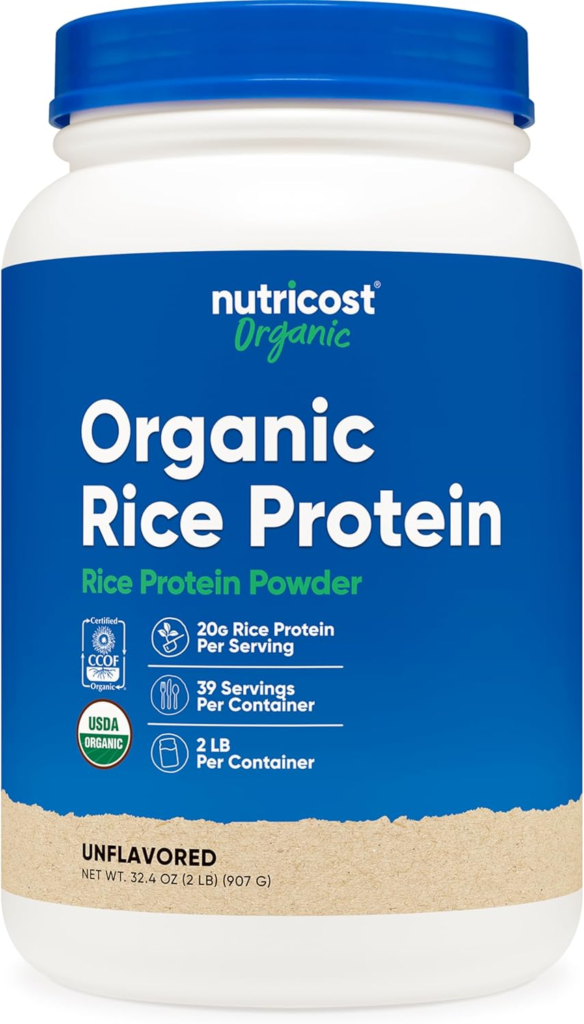
How Much Protein Can You Get From Protein Shakes?
The amount of protein you get from a scoop of protein powder can vary depending on the brand, but on average, you can expect anywhere from 10 to 30 grams of protein per serving. This amount typically covers 20 to 50 percent of your daily recommended protein intake. In addition to protein, some plain protein shakes may also contain trace amounts of other vitamins and minerals, providing a small boost to your overall nutrient intake. However, the primary focus of protein shakes is still protein content.
Can You Drink protein powder without working out?
Is it safe to drink protein shakes without exercising? Can it lead to weight gain if you don’t work out? Research shows that it’s safe to drink protein shakes as long as you’re healthy, even if you’re not following a workout routine. However, there’s a difference between consuming protein shakes with exercise and drinking them without regular physical activity. While many fitness ads promise that protein shakes can help you build muscle, burn fat, or promote weight loss, they won’t work like magic if you don’t pair them with exercise. Let’s break down the pros and cons of drinking protein shakes without working out. This is what will happen to your body if you drink protein powder without working out :
Pros & Cons of Drinking Protein Shakes Without Working Out
Pros:
Nutritional Supplementation
- Ideal for those who struggle to meet daily protein needs from whole foods.
- Helps provide essential amino acids that support overall health, muscle maintenance, and immune function.
- Useful for individuals with dietary restrictions, limited food access, or higher protein requirements.
Versatile & Customizable
- Available in various types, including whey, casein, soy, pea, rice, and hemp proteins, catering to different dietary preferences.
- Can be blended with additional ingredients such as:
- Coffee for an energy boost
- Nuts & seeds for healthy fats
- Fruits & leafy greens for vitamins, minerals, and antioxidants
- Offers a nutrient-dense way to enhance your diet beyond just protein.
Convenient Meal Replacement
- Can serve as a quick, easy meal replacement when enhanced with extra ingredients like oats, nut butter, or yogurt.
- Supports immune function, hormone regulation, and enzyme production, contributing to overall health and well-being.
- Ideal for busy individuals, travelers, or those looking for a nutritious alternative to fast food.
Cons of Drinking Protein Shakes Without Working Out
Limited Muscle Synthesis
- Protein is essential for muscle repair and growth, but without exercise, the body has little need for extra protein.
- The benefits of protein shakes in terms of muscle building and recovery are significantly reduced if you don’t engage in resistance training or physical activity.

Reduced Protein Utilization
- The body’s protein requirements are lower without exercise, meaning you don’t need a concentrated source of amino acids like a protein shake.
- Excess protein may be used inefficiently, leading to waste rather than contributing to muscle repair or recovery.
Potential Weight Gain
- Extra calories from protein shakes can lead to fat storage if they aren’t burned off through exercise.
- If protein shakes are consumed in addition to regular meals rather than as a replacement, it may result in excess calorie intake and unwanted weight gain.
Digestive Issues
- Consuming large amounts of protein without sufficient physical activity may cause bloating, gas, stomach cramps, or diarrhea.
- Some protein powders contain lactose, artificial sweeteners, or fillers, which can trigger digestive discomfort, especially in those with lactose intolerance or sensitive stomachs.
Potential Downsides of Drinking Excess Protein Shakes Without Exercising
Unexpected Weight Gain
- Protein shakes are typically consumed for muscle building, not fat gain.
- Some people mistake protein shakes for a healthy milkshake substitute, but many shakes contain high amounts of calories, sugar, cream, or ice cream.
- Without exercise, consuming extra calories from protein shakes (especially with added ingredients) can result in unwanted weight gain.
- The body stores excess calories as fat, using them only when primary energy sources are depleted.
- Regular physical activity reduces the risk of this happening by burning off extra calories.
Potential Harm to Kidneys
- The body requires protein to repair and build muscles, especially after exercise.
- However, consuming excess protein without utilizing it through physical activity can put a strain on the kidneys, which are responsible for filtering excess protein.
- A high-protein diet can increase pressure inside the kidneys, forcing them to filter more blood than normal.
- Over time, this additional strain can lead to kidney damage.
- Research suggests that healthy kidneys can handle higher protein intake, but if you have any kidney-related conditions, consult a nutritionist for advice on limiting protein intake.
Unhealthy Spike in Blood Glucose Levels
- Many processed protein shakes contain added sugars, which can cause blood sugar levels to spike.
- The recommended sugar intake for adults should be no more than 30g per day (about 6-7 sugar cubes).
- Some protein shakes contain up to 30g of sugar per serving, potentially hitting or exceeding the daily sugar limit with just one shake.
- If you’re eating other sugary foods throughout the day, your overall sugar intake can easily exceed recommended levels, leading to health issues like insulin resistance or diabetes.
- Check labels for added sugars before purchasing, especially if you have concerns about blood sugar levels or are diabeties.
How To Choose the Right Protein Shake Product?
Choosing the right protein shake or protein powder requires a thoughtful decision. Before adding a product to your cart, check the label carefully to ensure you’re getting the best quality.
Here are the key factors to consider:
- Diverse nutritional profile: Ensure the product offers a range of essential nutrients that support your health goals.
- High-quality ingredients: Choose a protein powder made with premium ingredients to maximize benefits.
- Free from additives, fillers, artificial flavors, and preservatives: Opt for clean formulas without unnecessary additives.
- Tested by a third-party laboratory: Look for products that are verified for safety and quality through independent testing.
- Adheres to manufacturing quality standards: Ensure the product follows industry standards for production and quality control.
By considering these criteria, you can make an informed choice and select the protein shake that best suits your needs
FAQs
Is It Safe to Drink Protein Shakes Every Day?
Yes, it’s safe to drink protein shakes daily, depending on your goals and lifestyle. If you’re working out to build muscle, protein shakes can support muscle growth and recovery. Your total daily protein intake is more important than timing, so you can drink them before, after, or between meals. Many fitness enthusiasts prefer post-workout shakes, as this is considered the best time for your body to absorb protein and help muscles recover faster.
What Goes Into a Protein Shake?
Making a protein shake is easy and customizable. Start with your preferred protein powder and mix it with water, milk, or another liquid. Common shake additions include fruits like bananas and berries, leafy greens like spinach, and whole foods such as fish, chicken, or eggs for added protein. You can also add extras like chocolate, seeds, or yogurt for flavor and extra nutrients. This versatility makes protein shakes a convenient and nutritious option for any diet.
Can Protein Shakes Help with Weight Loss?
Yes, protein shakes can aid in weight loss when used as part of a balanced diet. Protein helps increase feelings of fullness, reducing hunger and potentially lowering overall calorie intake. If consumed in place of higher-calorie meals or snacks, protein shakes can support weight management by keeping you satisfied longer. However, it’s important to ensure your protein intake doesn’t exceed your calorie needs, as excessive protein or added ingredients can contribute to weight gain.
Are There Any Side Effects of Drinking Protein Shakes?
While protein shakes are generally safe, consuming them in excess can lead to digestive discomfort, such as bloating, gas, or diarrhea, especially if your body isn’t used to a high-protein diet. Additionally, too much protein without exercise can lead to weight gain, as excess protein may be stored as fat. Individuals with kidney conditions should consult their healthcare provider before increasing protein intake, as high levels may put extra strain on the kidneys over time
How Much Protein Should Be in My Shake?
The amount of protein you need in a shake depends on your fitness goals, body weight, and activity level. For general health, most adults require around 0.8 grams of protein per kilogram of body weight. However, athletes or those aiming to build muscle may need 1.6 to 2.2 grams per kilogram. Typically, one serving of protein powder provides around 20-30 grams of protein. Adjust based on your individual needs and dietary preferences.
Should You Drink Protein Shakes on Rest Days?
Whether you should drink protein shakes on your rest days depends on your fitness goals and dietary preferences. If your aim is to bulk up and gain muscle, drinking protein shakes on rest days can be beneficial. Adding ingredients like avocados, nuts, and oats to your shake can make it energy-dense, providing additional calories and nutrients that support muscle growth and recovery, even when you’re not working out.
Is It Good to Drink Protein Shakes for Breakfast?
Yes, protein shakes can be a great choice for breakfast, especially if you use them as a meal replacement. By adding ingredients like leafy greens, fruits, and healthy fats, you can make your shake tasty, filling, and nourishing. Just ensure that your breakfast provides a well-rounded nutritional profile with the right balance of macronutrients and micronutrients. You can also combine protein powder with coffee to kickstart your morning. The caffeine in coffee not only boosts your metabolism but also helps you stay alert and focused throughout the day.
Conclusion:
Protein shakes can be a great choice for breakfast, especially if you use them as a meal replacement. By adding ingredients like leafy greens, fruits, and healthy fats, you can make your shake tasty, filling, and nourishing. Just ensure that your breakfast provides a well-rounded nutritional profile with the right balance of macronutrients and micronutrients. You can also combine protein powder with coffee to kickstart your morning. The caffeine in coffee not only boosts your metabolism but also helps you stay alert and focused throughout the day. This article will serve as a guide to know about best results of taking protein powder without working out.
